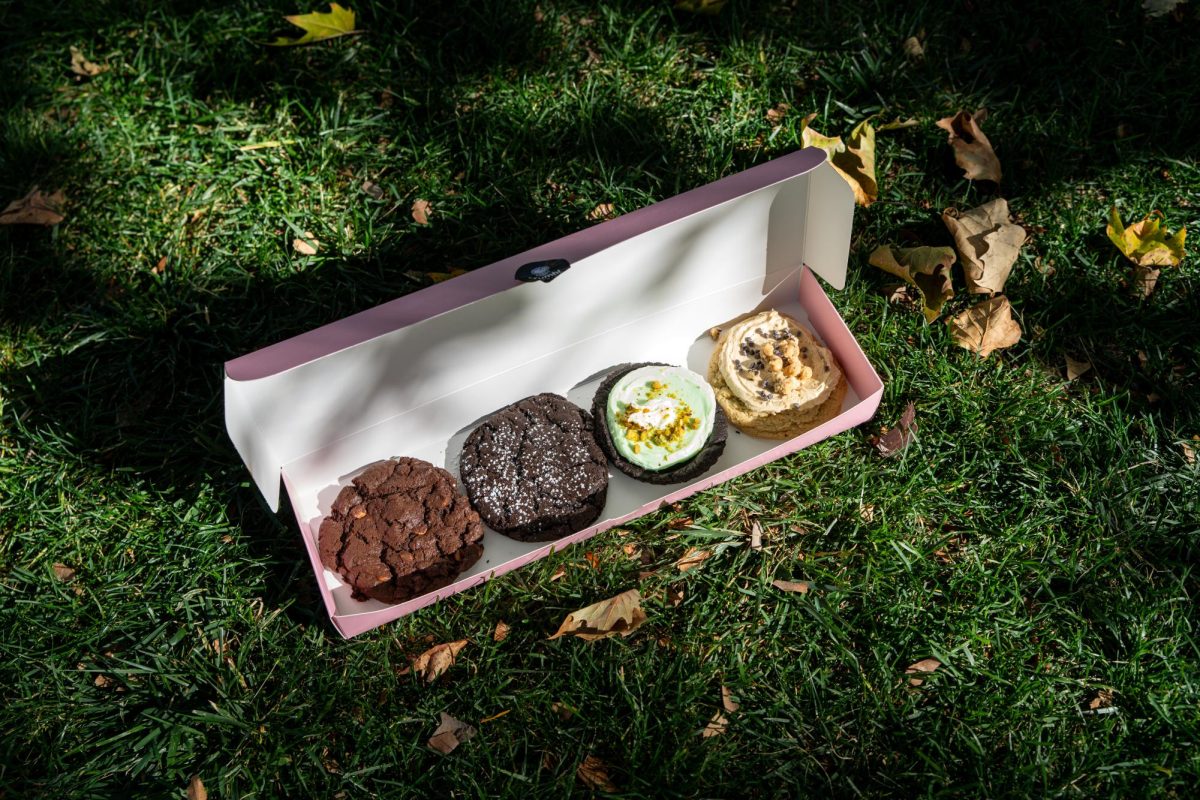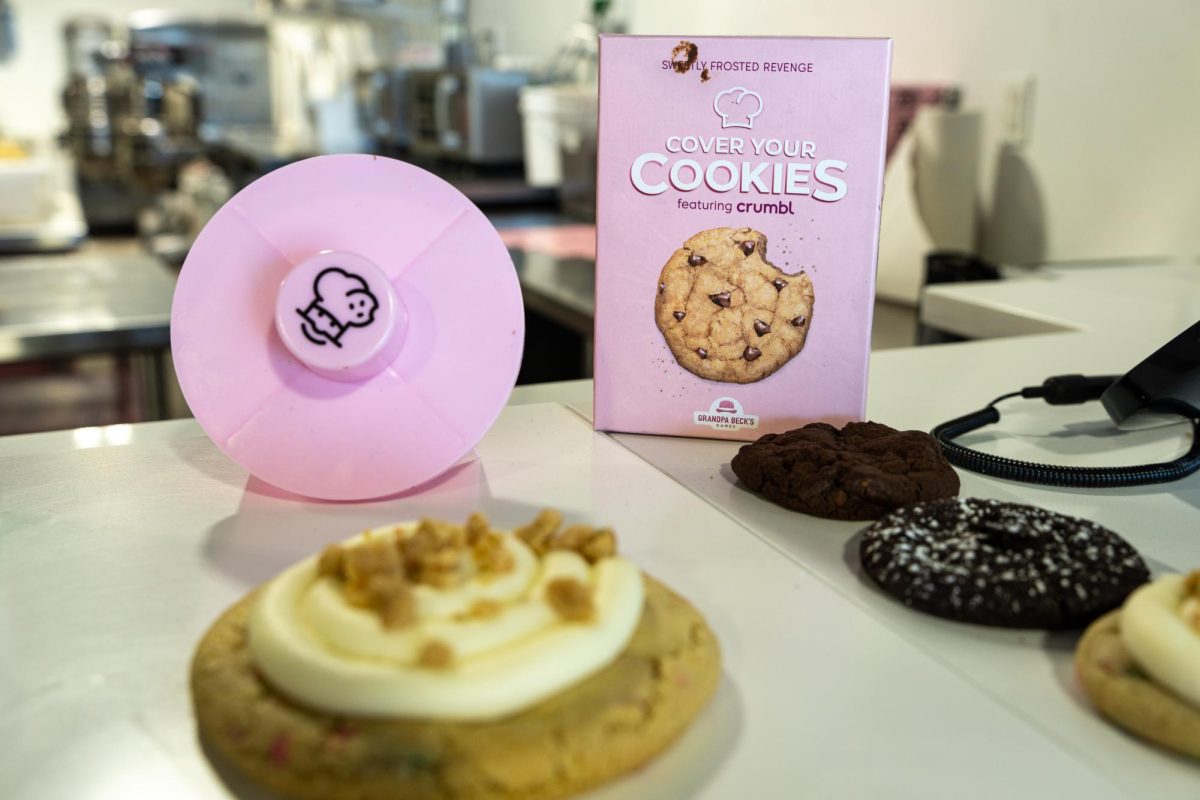Cruising around Salt Lake City, it’s impossible not to notice the different businesses and companies being promoted. According to the Lincoln Business Guide, 99.3% of businesses in Utah’s private sector are small businesses.
The most notorious of these small businesses are the snack shops scattered all over town. Specialty soda shops have lines bursting onto main roads, indie ice cream joints have full parking lots and cookie shops have risen onto the national stage.
Perhaps by understanding Crumbl, a local cookie shop turned national phenomenon, we can better grasp what it is about Utah that is so lucrative for small snack businesses.
Crumbl was started in 2017 in Logan, Utah by cousins Jason McGowan and Sawyer Hemsley, according to their website. After creating what they considered to be the perfect cookie, they opened a shop near Utah State University, where Hemsley was a student at the time.
“It was important to them that Crumbl customers see their cookies being mixed, balled, baked and dressed in real-time,” according to their website. They were fast, focusing on takeout and curbside delivery. And, they had a ton of different flavors with a rotating menu. These aspects led to rapid growth in popularity.
Today, Crumbl has over 800 stores in 40 states and is growing nationally. According to the Greater Gainesville Chamber of Commerce, they were the fastest-growing takeout and delivery cookie business in 2023.

However, there seems to be more to the story than meets the eye. Tessa and Asai Villarreal are former corporate employees of Crumbl who were with the company from 2019-23 and 2022-23, respectively.
Tessa Villarreal said Crumbl grew so quickly because they prepared themselves early on to be able to withstand the rapid growth.
“They had the right people, the right departments in place, they made sure that their back end could support the forward external growth,” she said.
Villarreal added what makes them so strong is the things that the customer doesn’t see. They are tight on the legal, analytical and structural parts of their business. She added Crumbl would stress to their employees that “this really is a tech company that sells cookies; it’s not a cookie company.”
Asai Villarreal said Crumbl’s business model was focused on scalability from the beginning, rather than the individual store that began it all.
“It wasn’t just, let’s focus on one store,” he said. “Let’s focus on the big picture. Let’s get everything set up on the back end. So that way we can roll through and make sure that our franchise partners are able to do it as quickly as [we] have.”
At the same time, Utah itself has played a role in Crumbl’s success.
Paul Brown, a professor of entrepreneurship and strategy at the David Eccles School of Business, commented on the snack food market in Utah.
“I think we like sugar in the state of Utah,” Brown said. “We seem to like ice cream and sugary snacks and soda pop. … I’ve at least heard anecdotally that we are very high per capita consumers of ice cream and candy.”
Tessa Villarreal said Crumbl is about more than the cookies; it’s about the experience.
“When a customer walks in, they should be happily greeted by every single baker in the kitchen,” she said. “And they should immediately go, ‘Wow.’ That’s why it’s bright, clean. … It wants to feel fresh and then you should go and the cookie should always be in stock. And then you should be out the door within two minutes.”
Lyda Bigelow, a professor at the David Eccles School of Business, said Crumbl is the epitome of what she calls the pioneering spirit. She added these snack companies are innovative and are focused specifically on being appealing to the communities around them.
Bigelow and Brown both said students should learn from what Crumbl is doing and try entrepreneurship, emphasizing the fact that the company was started by a college student and his cousin. Bigelow said the Lassonde Institute is a great resource for students wanting to start a small business.
Brown said he wants to “encourage our youth students to think hard about whether entrepreneurship is a path that would work for them. … Because when you’re young, even if something you try doesn’t work out, you’ll learn a lot and you won’t lose much time.”




